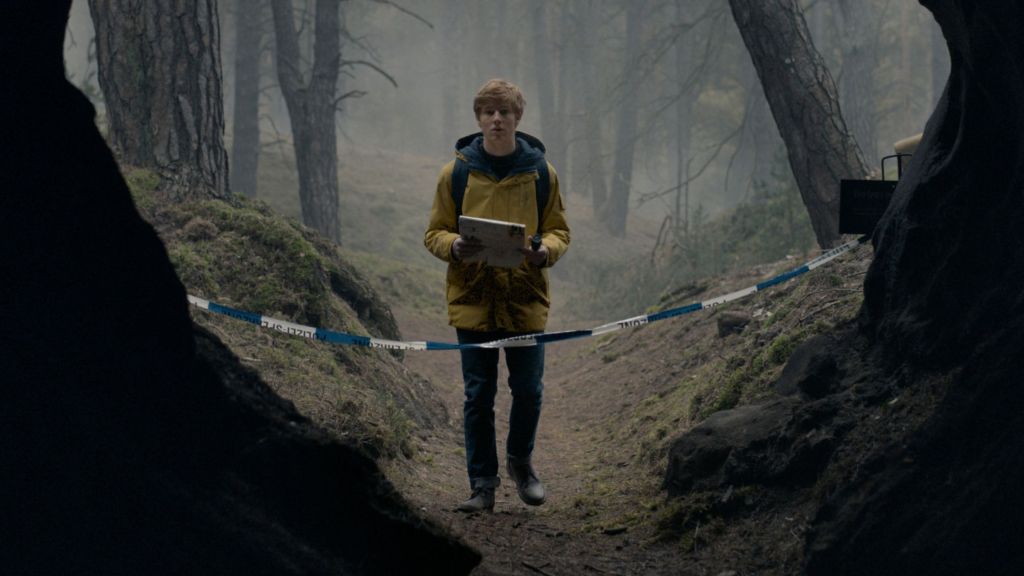Time travel is a fan-favorite, but it’s the bane of every sci-fi TV writer’s existence. The subgenre demands foolproof internal logic that consistently holds up to increasingly intricate plotlines. So often, time travel stories either collapse under their own complexity or resort to easy-button plot devices that undermine their ambitious concepts. Among a sea of swings and misses, however, one cult favorite Netflix show managed to pull off the impossible.
Videos by ComicBook.com
Netflix’s German series Dark contains three seasons of gorgeously crafted science fiction that respects both its audience’s intelligence and its own rules. Created by Baran bo Odar and Jantje Friese, Dark first aired in 2017 and finished its planned trilogy in 2020, telling the story of the town of Winden across multiple decades and dimensions. The series follows four families whose lives become entangled through a bizarre time-bending phenomenon. It starts as an investigation into the disappearance of young Mikkel Nielsen, but blossoms into an epic ride that conjures up classic time travel themes like free will and the cycles of human behavior.
How Dark Handled Time Travel Flawlessly

Dark is supremely addictive because it manages to up the ante while keeping the intricately woven threads from unravelling. The series presents time as a loop where events are predetermined, creating a bootstrap paradox that sees cause and effect as one and the same. Meanwhile, shows like Lost flailed because the time travel mechanics were an afterthought. Westworld became overly convoluted, and its characters suffered as a result. Even recent shows like La Brea and Quantum Leap have fallen into the trap of using temporal mechanics for convenience or short-term shock value. The Dark creators avoided these pitfalls by religiously sticking to their own framework and knowing their ending from the beginning, meaning all bread crumbs lead somewhere.
Despite being one of the best time travel shows ever produced, Dark remains underrated and under-discussed in American television circles. The series’ German language has proven to be a barrier to entry for English-speaking viewers, who are resistant to subtitles. However, many fans of the show have noted they became so immersed in the story that they forgot they were even reading subtitles within the first episode.
The high production value maxes out the mind-warp factor by creating a realistic world. Cinematographer Nikolaus Summerer’s visual style emphasizes the liminal forgotten spaces of the German countryside, making excellent use of locations, including actual cave systems and industrial sites. Casting director Simone Bär earned praise for finding actors to portray the same characters across time. The remarkable consistency in features is only made more convincing by the performances, and the haunting minimalist score from Ben Frost is the icing on the cake.
Perhaps most impressively, Dark manages to nail the ending, something that can rarely be said for any show, particularly one in this genre. In fact, the final season is even more revered than the first, boasting a 97% on Rotten Tomatoes. Careful writing throughout rewards engaged viewers with a satisfying “closing of the circle,” so to speak. For any sci-fi fans who have been hesitant, this is your sign to start Dark. Just make sure you pay attention, because no detail is unintended.
Have any other time travel series done it better than Dark? Let us know what you think in the comments below!
Want to stay up to date on the biggest geek entertainment news? Add us as a preferred source in Google – HERE.









